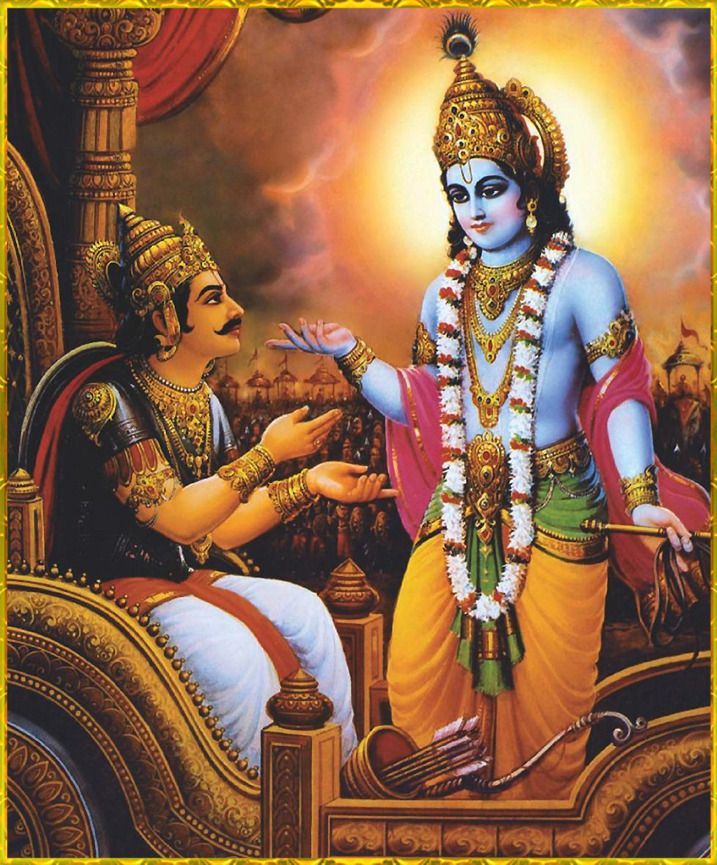
#BhagavadGita
अध्याय: ०६, श्र्लोक: ०६
बन्धुरात्मात्मनस्तस्य येनात्मैवात्मना जितः।
अनात्मनस्तु शत्रुत्वे वर्तेतात्मैव शत्रुवत्॥
अध्याय: ०६, श्र्लोक: ०६
बन्धुरात्मात्मनस्तस्य येनात्मैवात्मना जितः।
अनात्मनस्तु शत्रुत्वे वर्तेतात्मैव शत्रुवत्॥

जिन्होंने मन पर विजय पा ली है, मन उनका मित्र है किन्तु जो ऐसा करने में असफल होते हैं मन उनके शत्रु के समान कार्य करता है।
बन्धुः-मित्र; आत्मा–मन; आत्मनः-उस व्यक्ति के लिए; तस्य-उसका; येन-जिसने; आत्मा-मन; एव–निश्चय ही; आत्मना-जीवात्मा के लिए; जित:-विजेता; अनात्मनः-जो मन को वश नहीं कर सका; तु-लेकिन; शत्रुत्वे-शत्रुता का; वर्तेत-बना रहता है; आत्मा-मन; एव-जैसे; शत्रु-वत्-शत्रु के समान।
Chapter: 06, Verse: 06
bandhur ātmātmanas tasya yenātmaivātmanā jitaḥ
anātmanas tu śhatrutve vartetātmaiva śhatru-vat
For those who have conquered the mind, it is their friend. For those who have failed to do so, the mind works like an enemy.
bandhur ātmātmanas tasya yenātmaivātmanā jitaḥ
anātmanas tu śhatrutve vartetātmaiva śhatru-vat
For those who have conquered the mind, it is their friend. For those who have failed to do so, the mind works like an enemy.
bandhuḥ—friend; ātmā—the mind; ātmanaḥ—for the person; tasya—of him; yena—by whom; ātmā—the mind; eva—certainly; ātmanā—for the person; jitaḥ—conquered; anātmanaḥ—of those with unconquered mind; tu—but; śhatrutve—for an enemy; varteta—remains; ātmā—the mind; eva—as;
śhatru-vat—like an enemy
Bhagavad Gita: Chapter 6, Verse 6 (Shri Krishna uvach)
The name of this chapter is Dhyān Yog i.e. The Yog of Meditation.
Jai Shri Krishna ❤️🙏🏻🌺
Bhagavad Gita: Chapter 6, Verse 6 (Shri Krishna uvach)
The name of this chapter is Dhyān Yog i.e. The Yog of Meditation.
Jai Shri Krishna ❤️🙏🏻🌺
https://twitter.com/riya_sparkles/status/1582526841575079936?t=j14yovuXZT-9_uBPeeZmKw&s=19
Link of the sixth chapter, seventh verse.
• • •
Missing some Tweet in this thread? You can try to
force a refresh
















